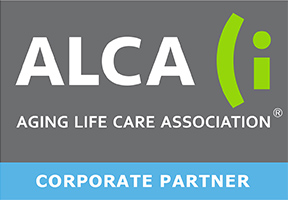Exploring senior living options can be intimidating, especially as the need for such options continues to grow alongside an aging population. With the rise in life expectancy, more families are facing the challenge of finding suitable care for their aging loved ones. This is where assisted living and memory care facilities come into play. Assisted living provides support for seniors who require Some assistance with their daily life but able to and prefer to maintain independent life. On the other hand, memory care facilities cater specifically to individuals with Alzheimer’s disease, dementia, or other cognitive impairments, offering specialized care tailored to their unique needs.
Understanding the differences between assisted living and memory care is crucial for making informed decisions about senior care options. Each type of senior living community offers distinct services and amenities designed to meet the specific needs of its residents. While some families may find that assisted living is a suitable starting point, others may recognize that memory care is the immediate and most appropriate choice for their family member. Therefore, it’s essential to carefully assess an individual’s needs and preferences before making any decision. [1], [2]
What is Assisted Living?
Assisted living is a residential option designed for individuals which offer a safe, long-term residential setting for active seniors who can no longer live on their own. The primary purpose of assisted living facilities is to provide support and personalized care to seniors who wish to remain as independent as possible. Residents typically reside in their own private rooms or apartments within the facility while having access to communal areas for socialization and recreational activities.
In assisted living facilities, residents can expect to receive a range of services and amenities aimed at enhancing their quality of life. These may include regular prepared meals and snacks, housekeeping services, and laundry assistance to ensure a comfortable and well-maintained living environment. Additionally, staff members are available to aid with personal care tasks such as grooming, bathing, and medication management. These services are often tailored to meet the individual needs and preferences of each resident, allowing for a customized level of support.
In addition to requiring support with ADLs, typical assisted living residents can include individuals that have difficulties with mobility, medication management, or are seeking the social opportunities provided by assisted living communities.[2],[3]
What is Memory Care?
Memory care facilities are specifically designed to cater to individuals with dementia, such as Alzheimer’s disease, offering specialized support tailored to their unique needs. Unlike assisted living facilities, memory care centers provide secure environments with smaller bedrooms and inviting communal spaces. These facilities prioritize clarity and simplicity, featuring clear signage, soft colors, and clutter-free layouts to ease the transition from independent living to memory care.
Specialized services and programming in memory care centers are geared towards enhancing the quality of life for residents with cognitive impairments. With around-the-clock, specially trained staff, these facilities offer structured environments focused on safety and security. Staff members are adept at handling behaviors common in dementia, such as aggression and wandering, while also providing activities aimed at maintaining cognitive function and stimulating residents at various stages of the disease. Compared to assisted living, memory care facilities maintain a smaller staff-to-patient ratio to ensure personalized attention and support for individuals with more intensive care needs. [2], [3]
5 Key Differences Between Assisted Living & Memory Care
By exploring the features and benefits of each option, families can better determine which type of senior living care aligns best with their loved one’s requirements and enhances their quality of life.
Staff Training & Care
Staff at both assisted living and memory care facilities support residents with daily tasks, but memory care staff receive specialized training for around-the-clock person-centered care, especially for individuals with dementia and cognitive impairment. With a higher caregiver-to-resident ratio, memory care staff offer direct oversight and compassionately manage challenging behaviors like wandering and aggression. They’re equipped to address specific needs such as dementia related behavioral problems, ensuring residents’ well-being and quality of life. This tailored support distinguishes memory care from assisted living, providing reassurance and relief for families facing dementia-related challenges. [2], [4]
Physical Environment & Safety
Memory care and assisted living facilities tailor their environments to address the safety concerns of residents, particularly those with memory and judgment issues. While both settings aim to maximize residents’ safety, memory care communities implement additional measures such as door alarms, motion-sensor lighting, and single-touch sinks to accommodate the sensory changes associated with conditions like Alzheimer’s disease.
These precautions not only enhance safety but also promote independence, allowing residents to navigate their surroundings more confidently. Some memory care communities may utilize remote cameras for monitoring, providing an extra layer of security. In contrast, assisted living centers may lack these specialized safety features, which would not be a good fit for individuals who require an increased safety environment related to dementia [1], [2]
Activities & Programming
Assisted living communities prioritize engaging activities to entertain and stimulate residents, catering to active seniors who may need some assistance with daily tasks. With amenities like music areas, crafts rooms, and fitness centers, along with organized outings and social events, assisted living fosters a vibrant social environment.
Memory care communities offer similar activities but with a personalized approach geared towards improving cognitive function. Specialized programs like music therapy, art therapy, and reminiscence therapy are tailored to address the unique needs of seniors with memory loss, promoting relaxation, slowing cognitive decline, and stimulating memory recall. With a focus on structure, sensory stimulation, and engagement, memory care activities aim to minimize confusion, improve sleep patterns, and enhance residents’ overall well-being. [3], [4]
Dining
Assisted living and memory care communities both offer up to three meals daily in a social setting, providing residents with opportunities for socialization and nourishment. However, the challenges posed by Alzheimer’s disease may complicate nutrition for individuals in memory care. To address this, memory care facilities offer specialized diets and dining support tailored to residents’ specific needs and preferences.
Residents are presented with multiple food options to empower them in making choices about their diet, while dining environments are designed to be less distracting. Additionally, adaptive utensils and plates are provided to ensure residents can comfortably consume the necessary calories and nutrition they need while maintaining independence and dignity. [1],[2]
Costs
The costs associated with assisted living and memory care can vary significantly depending on factors such as location, level of care, and type of facility. Assisted living has a median cost of $4,917 per month, while memory care costs $6,160 per month on average. This higher cost reflects the additional support and resources provided by memory care communities to meet the unique needs of individuals with dementia. Total costs may fluctuate based on regional differences, ranging from $6,600 to $8,250 in areas such as the Northeast and West Coast.
Financing for both types of care typically involve long-term care insurance, personal savings and assets, and federal programs. Medicaid can cover some of the costs, but Medicare typically only covers short term health care costs in the facility. Veteran benefits may be available as well. Families are encouraged to explore all their options by seeking expert advice and caregiver support. [3], [4], [5]

Choosing Between Assisted Living & Memory Care
When deciding between assisted living or memory care for a loved one, it’s essential to consider their individual needs and level of independence. Those with early dementia who maintain independence or require minimal assistance may find assisted living more suitable, as memory care could feel overly restrictive. However, if daily functioning is a struggle, and your loved one needs consistent support or experiences fear and loneliness at home, memory care may offer the necessary specialized care and environment.
Regardless of which option you choose, prioritize communities with extensive experience in supporting seniors and ensure your loved one feels comfortable during visits. Seeking input from your loved one, considering their unique needs, and reading reviews from current or former residents’ families to help in the decision-making. Utilizing referral services can provide valuable guidance to ensure your loved one’s comfort and safety in choosing a residence. It is recommended to seek professional guidance from primary care physicians and geriatricians for their input and consultation. Finally, visiting facilities can be beneficial in deciding the right community for your needs.[1], [5]
References
[1] Kelley, Paul. “5 Key Differences between Memory Care & Assisted Living.” The Arbor Company, The Arbor Company, 21 Nov. 2022, www.arborcompany.com/blog/memory-care-vs.-assisted-living-5-key-differences.
[2] “Assisted Living vs. Memory Care: Which One Is Best for Your Loved One?” Inspired Living, 6 Mar. 2023, www.inspiredliving.care/assisted-living-vs-memory-care-which-one-is-best-for-your-loved-one/.
[3] Durrani, Ana. “Assisted Living vs Memory Care.” SeniorLiving.Org, 5 Apr. 2024, www.seniorliving.org/compare/assisted-living-vs-memory-care/.
[4] “Assisted Living vs. Memory Care: 5 Key Differences.” A Place for Mom, 4 May 2020, www.aplaceformom.com/caregiver-resources/articles/assisted-living-vs-memory-care.
[5] “Assisted Living vs. Memory Care: What’s the Difference?” Forbes, Forbes Magazine, 8 Feb. 2024, www.forbes.com/health/senior-living/assisted-living-vs-memory-care/.
The information provided in the article is for general informational purposes only. This information is not a substitute for medical advice. Accordingly, before taking any actions based upon such information, you are encouraged to consult with the appropriate professionals.





